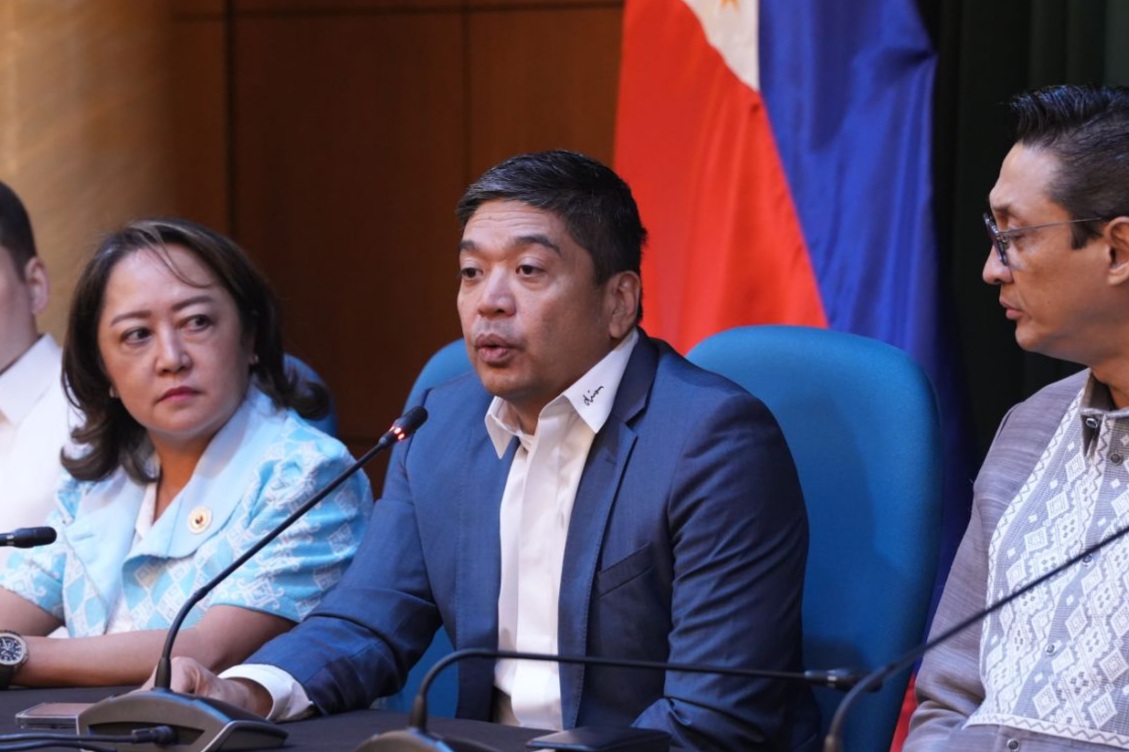Villafuerte entices businesses to avail of tax breaks under EBET program
At A Glance
- Camarines Sur 2nd district Rep. LRay Villafuerte says generous tax incentives await businesses partnering with the government on the Enterprise-Based Education and Training (EBET) of workers and students.
 Camarines Sur 2nd district Rep. LRay Villafuerte (PPAB)
Camarines Sur 2nd district Rep. LRay Villafuerte (PPAB)
Camarines Sur 2nd district Rep. LRay Villafuerte says generous tax incentives await businesses partnering with the government on the Enterprise-Based Education and Training (EBET) of workers and students.
In a statement Sunday, Dec. 22, Villafuerte said the EBET program intends to reskill or upskill individuals on the evolving skills and competencies that are actually sought by employers, especially those in priority enterprises.
“Private companies that will take part in the government’s new EBET program, which aims to sharpen the competitiveness here and abroad of the Filipino labor force, can avail of huge income tax deductions—equivalent to 50 percent of their actual training expenses between now and end-2027, and a higher 75 percent beginning January 2028, under the recently-signed Republic Act (RA) No.12063," Villafuerte said.
“Businesses extending donations, subsidies or financial aid to TVIs (technical vocational institutions) offering EBET programs are exempted under RA No.12063 from paying the donor’s tax, and shall be deductible from the gross income of the donor for that year,” said the Bicolano, a co-author of the new law.
Prior to his stint as a three-term governor of Camarines Sur and subsequently as a congressman, Villafuerte was an entrepreneur.
He said that RA No. 12063, or the EBET Framework Act that President Marcos signed earlier this month, “provides for the establishment of a one-stop shop and/or online portal meant to make it easy for participating enterprises to avail of the tax breaks".
To implement these tax incentives, he said, the law tasks the Department of Finance (DOF), Bureaus of Internal Revenue (BIR) and of Customs (BOC), and the Technical Skills and Development Authority (TESDA) to consult the relevant stakeholders on formulating the necessary rules and regulations, including the streamlining of processes to encourage enterprises to support and participate in EBET.
“It is only fitting that tax breaks and exemptions be given as a financial incentive to EBET-participating enterprises, as this novel program is designed to address a major factor behind our unemployment and underemployment woes, which is the nagging jobs-skills mismatch that prevents many of our workers and new graduates from getting hired or having jobs that actually suit them because they lack the skills or competencies needed by most employers,” said Villafuerte, president of the National Unity Party (NUP).
He explained that as the President stressed in signing RA No.12063, the EBET combines on-the-job work, apprenticeship and dual-tech training into one comprehensive program that the government, through the TESDA as lead implementer, can implement with partner businesses to close the skills gap in our labor force, by training our workers and students on new skills to improve their work competencies and make them “adaptable, future-ready” employees.
“This targeted assistance (for workers) will make it possible for even the smallest businesses to provide high-quality, industry-aligned training, empowering them to uplift their communities and the economy as a whole,” President Marcos said when he signed the law.
Villafuerte said, ‘This worker-accessible and industry-relevant enterprise-based training meant to bridge the skills of workers with the demands of industries will afford members of our labor force with opportunities for acquiring new skills, competencies or entrepreneurial know-how that will boost their prospects for getting quality, higher-paying jobs, especially in the priority sectors.”
The Bicolano solon recalled that the Second Congressional Commission on Education (EDCOM 2) has identified the skills-jobs mismatch as a continuing problem behind unemployment and underemployment, because many of our graduates join the Philippine labor force without the skills or competencies for specific jobs needed by industries.
“Hence, the EBET law will address this skills or competencies because the training paths under this new government-private sector program will enhance our graduates and workers’ readiness for the local and overseas job markets by making them more adaptable to and aligned with the ever-changing demands by industries,” Villafuerte noted.
Under the EBET law, general training programs shall focus on foundational and mid-level skills to prepare them for immediate employment, while the apprenticeship programs shall offer specialized training on higher-level work competencies for further career advancement.
Citing Philippine Statistics Authority (PSA) data, Villafuerte said that although the Philippines’ unemployment rate fell to 3.7 percent in September from 4.5 percent in the same month in 2023, underemployment went up to 11.9 percent last September from 11.2 percent a year ago.
Villafuerte agreed with Speaker Martin Romualdez that this EBET law will create more jobs and address the country’s underemployment problem.